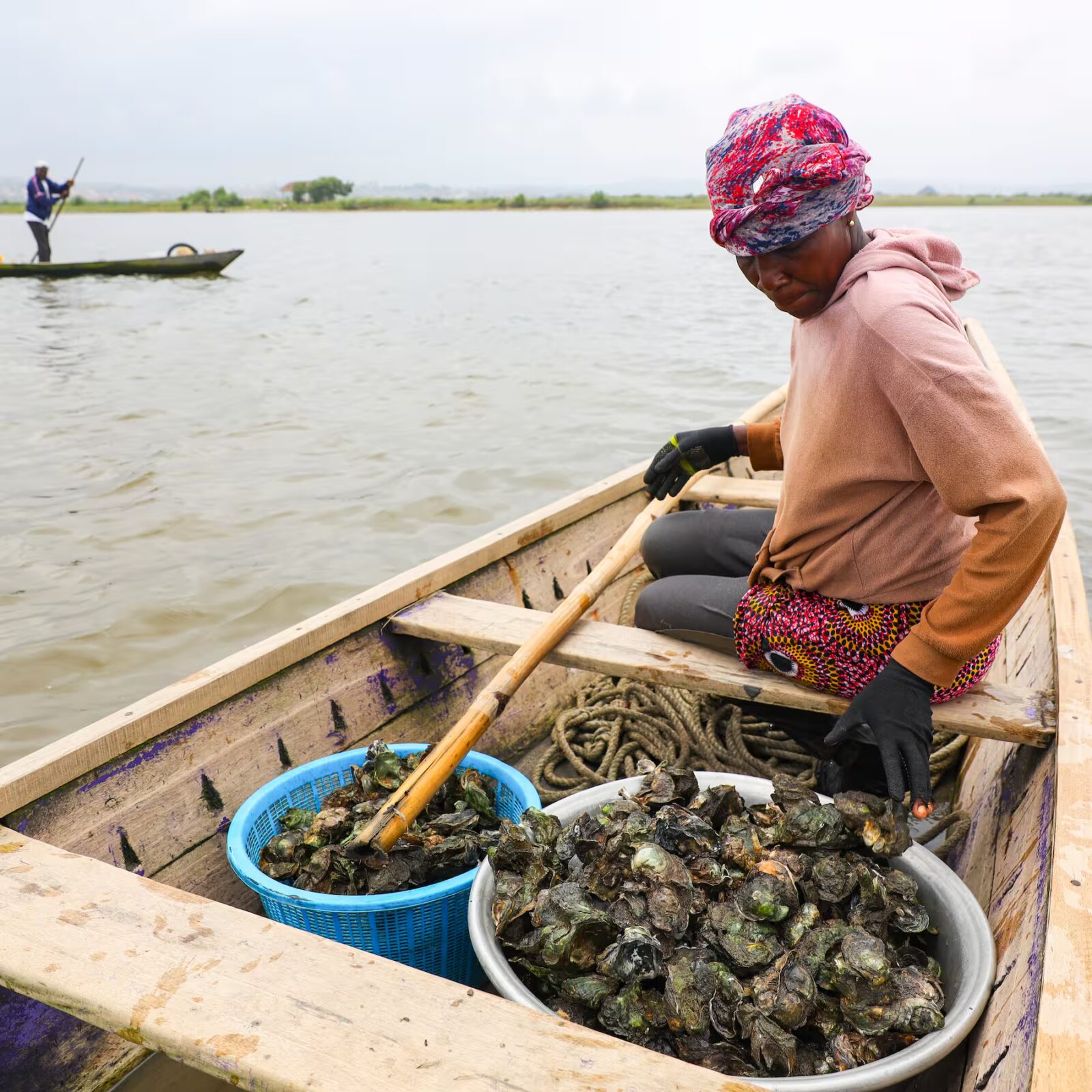In the small fishing community of Tsokomey, just outside Ghana’s bustling capital city of Accra, women like 45-year-old Beatrice Nutekpor rise each day to weave through thick mangroves in search of oysters. For Nutekpor, harvesting oysters is more than a means of survival it is a family heritage she has carried on since she was 15 years old. But in recent years, her ability to sustain this age-old tradition has been tested by climate change, deforestation, economic hardship, and the loss of crucial international support.
Oyster farming in Ghana’s coastal mangroves has long been a vital source of income, with women forming the backbone of this labor-intensive trade. Hundreds of women once benefited from training programs led by the Development Action Association, a nonprofit organization that taught eco-friendly oyster farming techniques such as mangrove replanting, preservation, and selective harvesting. These practices not only protected marine biodiversity but also provided resilience against the devastating effects of climate change. However, the program abruptly ended after the nonprofit lost U.S. funding, following foreign aid cuts under former President Donald Trump’s administration. Without that support, women like Nutekpor now face the challenge of protecting mangroves and sustaining their families on their own as Ghana struggles to recover from its worst economic crisis in decades.
The importance of mangroves to the coastal ecosystem cannot be overstated. These unique shrubs and trees provide safe breeding grounds for fish, act as natural buffers against coastal erosion, and shield communities from storms and rising sea levels. But Ghana, like much of coastal West Africa, has lost over 80% of its original mangroves to urban development, firewood collection, dam water releases, and the intensifying impacts of climate change. As sea levels rise and water bodies shift, oyster populations are being forced into deeper waters, making harvesting more dangerous. For women divers, this sometimes means plunging 30 feet into unpredictable waters for hours at a time, risking their lives in pursuit of the oysters that once flourished closer to shore.
Despite the struggles, the resilience of Ghana’s oyster farmers shines through. Women like Nutekpor and 39-year-old Bernice Bebli are working tirelessly to replant mangroves, even under the scorching sun, in hopes of restoring the natural oyster habitats that once sustained their families. Their sacrifices are not only for survival today but for the future of their children and grandchildren. Bebli explains, “We keep doing it for the sake of our children and generations to come. The water is our livelihood.”
Still, the battle is steep. A single basin of oysters sells for around 47 Ghanaian cedis, or just $4, barely enough to cover daily expenses and school fees. With fewer oysters available compared to previous years, women fear the collapse of an entire cultural and economic tradition. The Densu Oyster Pickers Association, a women-led cooperative, has established community rules to protect the mangroves, even imposing penalties on offenders who cut down trees outside of agreed-upon timelines. First-time offenders risk losing their oysters, while repeat offenders may face police intervention. Such community-led measures highlight the women’s determination to preserve what little is left.
Experts warn, however, that the situation remains precarious. According to Professor Francis Nunoo, a fisheries scientist at the University of Ghana, the pace of mangrove destruction is far outstripping efforts at replanting, endangering not only oyster populations but also human lives. “The reliance of coastal people on these ecosystems is heavy. The rate of destruction is always higher than the rate of repopulation, so we are going to lose some species and we are going to lose some lives,” he cautioned.
For Nutekpor, though, the fight is deeply personal. She dreams of passing on the knowledge her mother once gave her to her own daughter, ensuring that oyster farming remains more than just an economic activity it remains a family identity. “Just as my mother taught me this business, I also want to teach my daughter so she can teach her child. Then oyster farming will remain our family business,” she said with determination.
The story of Ghana’s women oyster farmers is not only one of survival but also one of resilience, tradition, and environmental stewardship. Against the backdrop of climate change, economic uncertainty, and shrinking ecosystems, these women continue to safeguard their families, their heritage, and the fragile mangroves that stand between them and the rising tides of the Atlantic Ocean.














Leave a comment